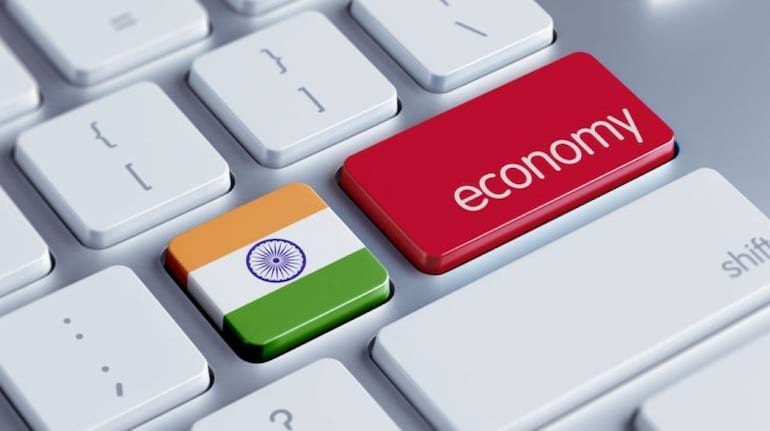http://sharetipsinfo.comJust get registered at Sharetipsinfo and earn positive returns

The UNCTAD Trade and Development Report 2021, released here on Wednesday, sounded a cautiously optimistic note to say that the global economy is set for a strong recovery in 2021, albeit with a good deal of uncertainty clouding the details at the regional and country levels over the second half of the year.
India is predicted to grow at 7.2 percent in 2021 but economic process could decelerate next year, consistent with a United Nations report which said the recovery within the country is constrained by the continued human and economic cost of the COVID-19 pandemic and therefore the negative impact of food price inflation on private consumption.
The UNCTAD Trade and Development Report 2021, released here on Wednesday, sounded a cautiously optimistic note to mention that the worldwide economy is about for a robust recovery in 2021, albeit with an honest deal of uncertainty clouding the small print at the regional and country levels over the last half of the year.
After a 3.5 percent fall in 2020, the United Nations Conference on Trade and Development (UNCTAD) expects world output to grow 5.3 percent this year, partially recovering the bottom lost in 2020.
The report said that India “suffered a contraction” of seven percent in 2020 and is predicted to grow 7.2 percent in 2021.
“The recovery in India is constrained by the continued human and economic cost of COVID-19, and therefore the negative impact of food price inflation on private consumption,” the UNCTAD report said.
The report projects that India will clock an economic process of 6.7 percent in 2022, slower than the country’s expected 2021 rate of growth .
However, even with a slower rate of growth of 6.7 percent, India will still be the fastest-growing major economy within the world next year.
“India, which experienced a contraction of seven .0 percent in 2020, showed a robust quarterly growth of 1.9 percent growth within the half-moon 2021, on the rear of the momentum of the last half of 2020 and supported by government spending in goods and services," the report said.
"Meanwhile, a severe and broadly unanticipated second wave of the pandemic, compounded by bottlenecks within the vaccine roll out, hit the country within the second quarter, on top of rising food and general price inflation, forcing widespread lockdowns and drastic consumption and investment adjustments,” it said.
It noted that income and wealth inequalities within the country have widened, and “social unrest has increased”.
The financial institution estimates another sharp contraction (quarter-on-quarter) within the second quarter followed by a rebound afterwards.
Share Market Tips | Investment Tips - Sharetipsinfo
“Given the inherent fragilities in dealing with the pandemic and restoring employment and incomes, growth in 2021 as an entire is estimated at 7.2 percent, insufficient to regain the pre-COVID-19 income level," the report said.
"Going forward, assuming away a resurgence of the pandemic to the degree experienced within the second wave, a revitalisation of personal sector activity, subject still to a slow recovery of jobs, is probably going to be matched with a more adverse policy environment, especially on the fiscal front, and with continuing pressures on the balance of trade . On these conditions, the economy is predicted to decelerate to six .7 percent growth in 2022,” the report said.
Further, it said that in India, consumer inflation was already at 6 percent before the pandemic. The COVID-19 shock caused a short-lived dip in prices, but because the economy recovered and food prices accelerated, the country returned to a 6 percent rate of inflation in mid-2021.
The UNCTAD said that global growth is predicted to hit 5.3 percent this year, the fastest in almost half a century, with some countries restoring - or maybe surpassing - their output level of 2019 by the top of 2021.
"The global picture beyond 2021, however, remains shrouded in uncertainty,” it said, adding that looking ahead, the UNCTAD expects world output to grow 3.6 percent in 2022.
South Asia suffered a pointy contraction of 5.6 percent in 2020, with the region’s economic activity delivered to a halt because of widespread restrictions.
Deficient public healthcare systems and high levels of informality magnified the impact of the pandemic in terms of both health and economic outcomes, which was reflected during a stark rise in poverty rates, the report said.
The UNCTAD expects the region to expand by 5.8 percent in 2021, with the more vigorous recovery signalled at the start of the year muted by a rapid surge in infections during the second quarter of 2021.
Moreover, the limited progress made in terms of vaccine rollouts continues to go away the countries of the region vulnerable to future outbreaks. For 2022, the UNCTAD expects the region’s rate of growth to moderate to five .7 percent.
The US is projected to grow at 5.7 percent in 2021 followed by a 3 percent GDP growth next year.
“In America , the fast recovery within the us recovery is predicted to boost GDP to 2 percent above its pre-COVID-19 level,” it said.
China, estimated to grow at 8.3 percent this year, will see its growth hamper to five .7 percent in 2022.
The report said that the planet needs simpler multilateral coordination, without which recovery efforts in advanced countries will damage development prospects within the South and amplify existing inequalities.
“The global recovery from the pandemic must reach beyond emergency spending and infrastructure investments to embrace a reinvigorated multilateral model for trade and development,” said Rebeca Grynspan, the secretary-general of the UNCTAD.
“Only a concerted rethinking of priorities holds out hope of addressing the inequality and climate crises that have come to define our era.”